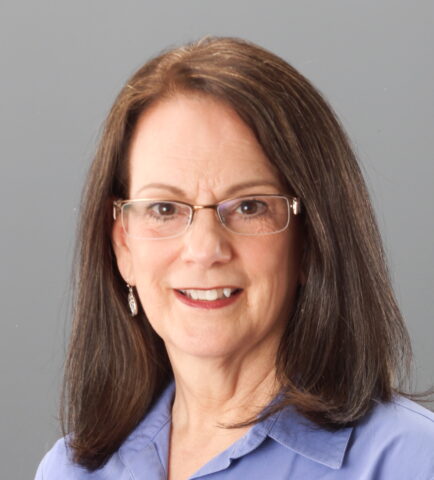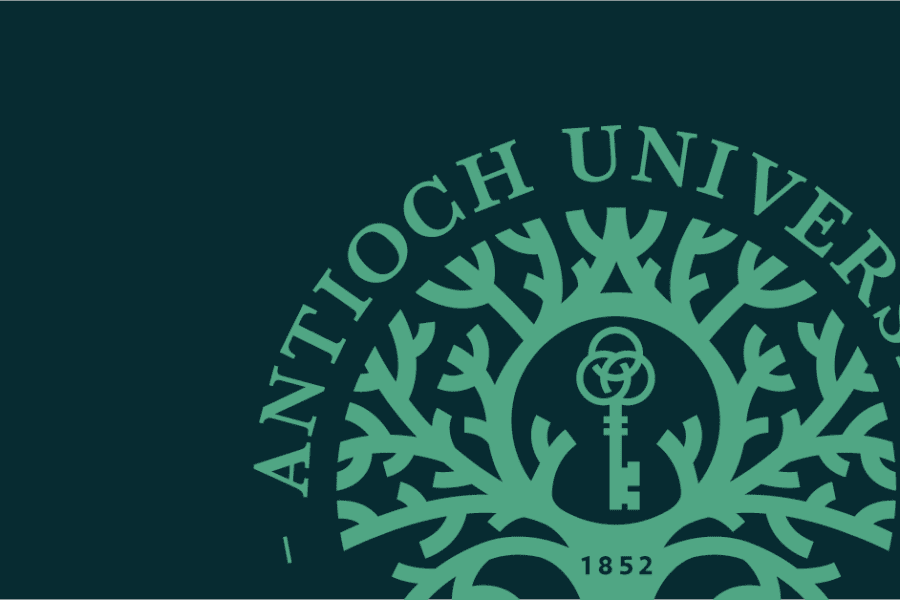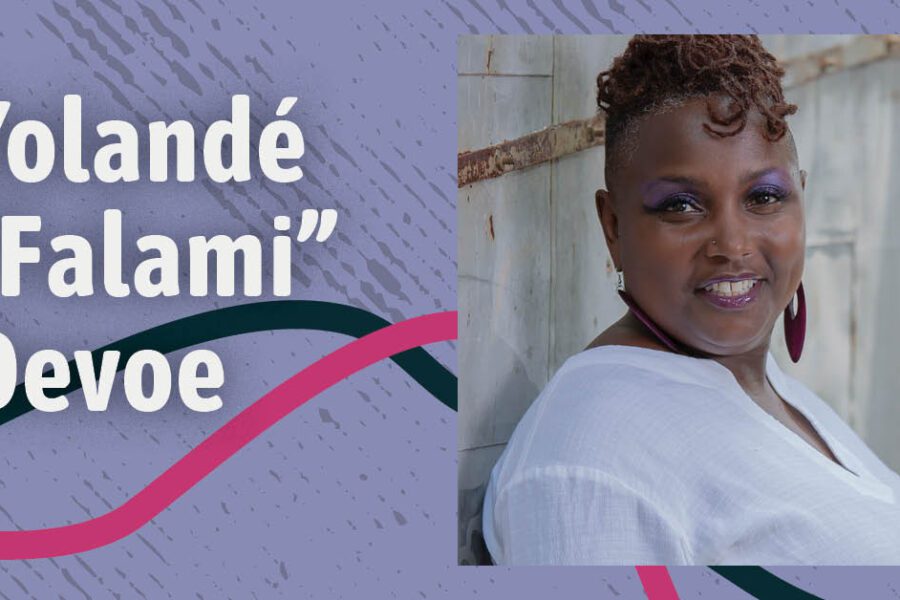Antioch Seattle Faculty Member Illuminates Disparities in Access to School Librarians
A Study Triggered by Decline
In the school library world no one would be shocked at data finding librarian positions in decline. Since the 1980’s the National Center for Education Statistics (NCES) has been tracking the number of certain staff positions in schools across the United States, including School Librarians, and the numbers are clear. However, the usefulness of this information has been tempered by its raw nature. Deb Kachel and Keith Curry Lance are two researchers in the Library Science community that are organizing this data to make it accessible for school and library leaders to assess staffing choices and support equitable educational opportunities for all students.

Together they developed the SLIDE project, “School Librarian Investigation-Decline or Evolution,” a three-year study into the trends of literacy educator positions in the national K-12 system. The first-year prospective study of information gathered from the NCES was recently released. The next two years will focus on qualitative research interviewing administrators to illuminate what factors guide the retention and loss of school librarians. Kachel and Lance hope that through their project the inequities in access to school librarians, the shifting expectations of the position, and administrative attitudes towards it, will lead to further research and advocacy. They were denied twice before securing funding for the research from the Institute of Library Science and Museums, but they knew the project was important.
Kachel, an Antioch Seattle School of Education faculty member, was a K-12 librarian for years, eventually becoming a district school library supervisor. During this time she also worked as a grant writer for the Mansfield University of Pennsylvania securing several grants. These awards averaged $750,000 a piece in scholarships for the online Library Science program. Antioch was directed to Kachel when they were interested in developing similar grant proposals for their online program. This began a collaborative relationship that lasted until Mansfield closed their Library Science program and Kachel shifted to solely working with Antioch.

Kachel and Lance met working on an impact study in Pennsylvania where Kachel was project director and Lance was the principal investigator. This is where they first noticed the trend of declining school librarians. For over 20 years Lance was the director of the Colorado State Library Research Service, one of a small number of full-time library research centers in the country. He is best known for his work on several of these types of state-level school library impact studies. During this project, they began to see the loss of school library positions as a marked trend in the data and they wanted to know what the extent of these losses were.
What they found in their work this year was sobering, not only were the numbers of school librarians going down, but schools most likely to be affected had largely marginalized populations of students. Districts with higher levels of students living in poverty, more English language learners, and rural districts were significantly less likely to have librarians on staff. Districts with a majority of Latinx students were more than twice as likely to have no librarians.
“What I believe based on our experience over the last few years is nobody bothered to look at this federal data before. And I don’t think a lot of people realized just how bad things were in terms of both loss and equity,” says Lance. The SLIDE project used this federal data to create intuitive, interactive web tools that enable users to generate tables, charts, and maps summarizing data for their state and school district using the study’s district characteristics (enrollment, locale, per-pupil expenditures) and student demographics (poverty, race/ethnicity, and English Language Learners).
A Study Open to Evolution
A key aspect to understanding the role of school librarians that has been limited by the federal data is how technology has shifted the expectations of the position. The nature of long-term data collection has meant the definition of school librarian laid out by the National Center for Education Statistics hasn’t changed since the 1980’s. There is no mention of computers, the internet, or information literacy. Kachel and Lance hypothesize this inflexibility has led to the under-reporting of positions that could be considered in alignment with the expanded roles of a school librarian in a society that has become swiftly saturated with web-based information gathering. This is an important distinction. If the position has become hybrid they believe the library science community would be remiss to fail to recognize and adapt to the new reality. “We have to do a better job and maybe it demands a new type of professional that used to be a school librarian and now is evolving with technology,” says Kachel.
One example of this is California, a state with a notable lack of school librarians on the interactive SLIDE map. In this case one year 900 librarians were lost. However, what became clear was schools started reporting these positions under various other titles. They hoped to keep the positions safe from budget cuts by removing them as standout single-line expenses. In reality, the positions still existed. An example of a Librarian by any other name was a position in “Educational Technology-Information Literacy.” Lance described a possible scenario, “If I’m the person in the district office, who responds to the National Center for Education every year I count district administrators, school administrators, teachers, school librarians…school librarians, do I have any of those? No, I’ve got an ETL”
In the next qualitative stage of research, Kachel and Lance aim to interview 100 district-level administrators to get a clearer picture of how the position has changed from their perspective. A common reasoning from school officials about why they have gotten rid of the role of a school librarian is finances, but the data says otherwise. “There are a lot of places that spend the least amount per pupil in their school districts that have much better school librarian staffing than schools spending more money. So that was an aha for us, discovering that difference.” If it’s not just about money what is determining these shifts? Two of the most likely indicators for a retention of school librarians is if the state has policy mandating their employment, or if there is a University nearby that focuses on Library Science. Kachel and Lance refer to this as a “pipeline” issue and it speaks to the attitude broadly around the value of the position and the difficulty in hiring if no one in the area is trained.
What’s At Stake
There are many roles the school librarian plays, but one aspect Kachel and Lance both emphasized was the guidance provided in assessing the validity of information. A 2016 Stanford study showed that middle schoolers were often unable to tell the difference between articles from verified news sources and paid advertisements. Kachel and Lance both pointed to the possible long-term consequences of this lack of discernment. Learners become leaders and an important part of the school librarian role, by any name, is to assist students in navigating the onslaught of information available to them. “So many students are getting all of their information and news from Facebook and Twitter and places like that. And we are experiencing right now and how that is impacting our society, and our politics,” explains Lance.
Kachel also described the unique abilities a school librarian has in curating learning material, “We are trained in how to build a collection of books that meets all kinds of student needs, one that has a diversity of opinion and a diversity of characters in it.” Without this kind of curation, schools are left with haphazard collections of books that don’t connect with young readers. Students least likely to have school librarians are also least likely to have the opportunity to engage with material that reflects their life experiences. If these students lose the chance to connect with books, if there are generations of students graduating without dynamic school libraries, it leaves the future of libraries in question as well.
Although deeply invested in libraries’ futures it isn’t what’s most important to Kachel, “It doesn’t matter what librarians are called, it doesn’t matter where they work, we’ve got to teach students how to navigate information in the future. The bottom line is we’ve got to figure out how to do better for students.”






